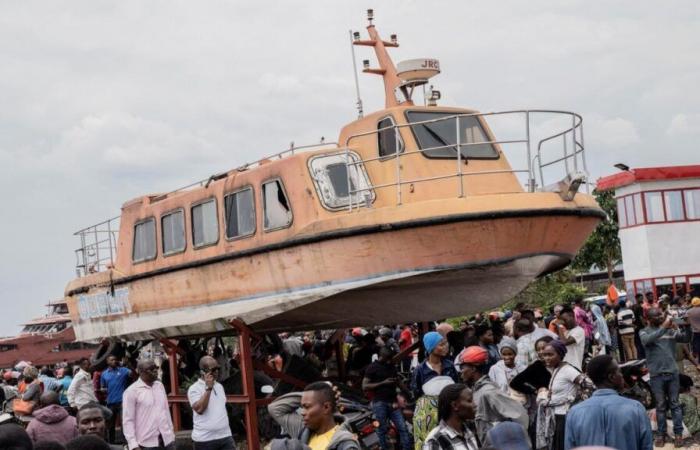In the east of the Democratic Republic of Congo (DRC), following the offensives of the M23 rebels, the price of food has risen in the city of Goma, capital of North Kivu, which has more than a million of inhabitants. The most consumed foods, such as potatoes and beans, have seen their prices double in the Birere and Kituku markets, on which the Gomatraciens depend.
From our correspondent in Goma,
At the Birere food products market, traders complain about the lack of customers. But also taxes imposed by armed groupswhich drove up prices in RDC. « This quality of multicolored beans sells for $65 per bag, red beans for $70, a bag of potatoes sells for $95 ! », observed l'un d'eux, Bahufite Ntihemuka.
Due to the drop in production in the regions of Masisi, Rutshuru and the closure of roads, food products are increasingly rare in Goma. Potato wholesaler on this Birere market, Neema Ngarukiye has difficulty selling her merchandise, which is too expensive, and also has difficulty obtaining it: “ Before the war, I unloaded ten trucks a day. Today, I can't even sell a truck. »
Doubling of prices on the markets
Beans, vegetables, potatoes, the most consumed foods in Goma have seen their prices double. This inflation harms the purchasing power of families. Sitting on a volcanic stone in front of her small women's clothing business in the Ndosho district, west of Goma, Céline Mbuhu says that today, she has difficulty feeding her children:
« We live difficultly because of the M23 war. Previously, even with my seven children, I could easily stock up for the evening meal with 5 000 Congolese francs [1,7$]. Today, it is almost impossible. »
Bananas and coal cross Lake Kivu
Since the advance of M23 rebels who surrounded the city of Goma, the supply of food became a headache. About ten kilometers away, on the shores of Lake Kivu, the Kituku market has become the only hope for the survival of Goma. Food products leave the territory of Masisi, Minova and Buzi-Bulenga, in the province of South Kivu, and they arrive en masse every Monday and Thursday, market days. Zawadi Emilliane is a trader who crosses Lake Kivu to sell her plantains:
« I bring at least ten bunches of bananas and if I win a lot, I get 10 000 CFA francs », she congratulates herself. Even coal, which came from Masisi and Rutshuru, now comes from Kalehe. “ There is a lot of activity at Kituku Marketobserves its president Chance Kanane. Charcoal sales can exceed 5 000 bags on Monday and Thursday, market days. »
While waiting for the end of the war and the reopening of the Goma-Sake-Minova road, the sea route on Lake Kivu has become essential for supplying the population of Goma, swollen by displaced people from the surrounding area.






